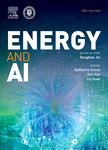A Review of physics-based and data-driven models for real-time control of polymer electrolyte membrane fuel cells
作者机构:Department of Mechanical and Mechatronics EngineeringUniversity of WaterlooWaterlooOntarioCanada Department of Systems Design EngineeringUniversity of WaterlooWaterlooOntarioCanada
出 版 物:《能源与人工智能(英文)》 (Energy and AI)
年 卷 期:2021年第6卷第4期
页 面:97-129页
核心收录:
学科分类:0808[工学-电气工程] 08[工学] 0807[工学-动力工程及工程热物理] 0811[工学-控制科学与工程] 0812[工学-计算机科学与技术(可授工学、理学学位)]
基 金:This work received financial support from Toyota Motor Engineering&Manufacturing North America Inc. Toyota Motor Manufacturing Canada and Natural Sciences and Engineering Research Council of Canada through a Collaborative Research and Development Grant with the project number of CRDPJ 543945-19
主 题:Polymer electrolyte membrane fuel cell Physics-based model Real-time control Reduced dimensionality Empirical model Data-driven model Artificial intelligence
摘 要:The real-time model-based control of polymer electrolyte membrane(PEM)fuel cells requires a computationally efficient and sufficiently accurate model to predict the transient and long-term performance under various operational conditions,involving the pressure,temperature,humidity,and stoichiometry *** this article,recent progress on the development of PEM fuel cell models that can be used for real-time control is *** major operational principles of PEM fuel cells and the associated mathematical description of the transport and electrochemical phenomena are *** reduced-dimensional physics-based models(pseudo-twodimensional,one-dimensional numerical and zero dimensional analytical models)and the non-physics-based models(zero-dimensional empirical and data-driven models)have been systematically examined,and the comparison of these models has been *** is found that the current trends for the real-time control models are(i)to couple the single cell model with balance of plants to investigate the system performance,(ii)to incorporate aging effects to enable long-term performance prediction,(iii)to increase the computational speed(especially for one-dimensional numerical models),and(iv)to develop data-driven models with artificial intelligence/machine learning *** review will be beneficial for the development of physics or nonphysics based models with sufficient accuracy and computational speed to ensure the real-time control of PEM fuel cells.



